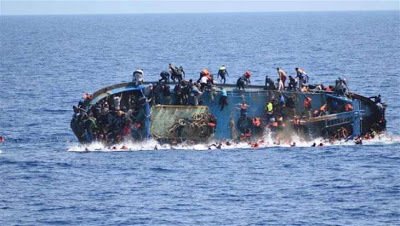Factbox: About 200 Migrants drowned last year in trying to reach Europe

- Country:
- United Kingdom
The number of migrants drowned while trying to reach Europe this year has hit 200, according to migration charities, after two dinghies sank trying cross the Mediterranean. Migrants from the Middle East, Africa and parts of Asia, fleeing poverty and conflicts, have tried for years to cross the Mediterranean to reach the European Union (EU). Here are some facts about migrants crossing the Mediterranean and how it has impacted the region:
* As of Jan. 21, there were 200 recorded deaths at sea in the Mediterranean since the start of the year, International Organization for Migration (IOM) data showed. * Migrant sea arrivals to Europe in the first 16 days of 2019 totalled 4,216, compared with 2,365 in the same period of 2018, according to IOM.
* In 2018, some 2,297 migrants died or went missing in the Mediterranean while 116,959 people reached Europe by sea. * Until June, Italy took in almost all the migrants rescued by humanitarian groups. But Matteo Salvini, interior minister with the new populist coalition government and leader of the anti-immigrant League party, has closed the ports to rescue ships.
* In recent months Spain and Malta have agreed to take in some rescued migrants, but often not before long negotiations with other EU countries. As a consequence, most humanitarian groups have abandoned sea rescue efforts. * Aquarius, the last charity rescue ship operating off of Libya, ended its operations in December due to a "smear campaign" by European governments, according to Doctors without Borders (MSF), which ran the ship.
* Last July, 193 U.N. members excluding the United States agreed on a non-binding pact to foster cooperation on migration. But only 164 formally signed it in a meeting in December, with Australia, Israel and several Eastern European countries rejecting the migration compact. Source: IOM, UNHCR, Caminando Fronteras, Sea-Watch
(With inputs from agencies.)
ALSO READ
EXPLAINER-South China Sea: Why are China and Philippines tensions heating up?
"43 ghost towns...": Israeli researcher om present situation in Pakistan amid war with Hamas
Rugby-Ten years on, nearly-men Waratahs playing for their season
What New Stories Await in Alice in Borderland Season 3?
Lupin Season 4: Assane Diop's Cunning Return










